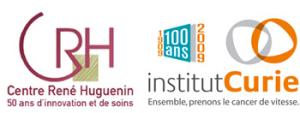“Maybe they have found something new” participants’ views on returning cohort psychosocial survey results
Résumé
BACKGROUND:
Although greater attention is currently being paid to participants in research, no studies have dealt so far with the issue of returning aggregate psychosocial results to cohort participants.
OBJECTIVE:
(i) To explore participants' views about disclosure of the aggregate results of a French national psychosocial cohort survey on the epidemiology of preventive behaviour in women from families with a hereditary breast cancer risk. (ii) To assess whether it is worth consulting participants before designing the disclosure process.
DESIGN:
A qualitative study using semi-structured face-to-face interviews and a thematic analysis based on Grounded Theory methods.
PARTICIPANTS:
Nineteen interviews were conducted with cancer-free female BRCA mutation carriers/non-carriers aged 31-79 who had participated in a cohort survey by answering self-administered questionnaires.
RESULTS:
Participants showed considerable interest in the issue of result disclosure. The preferences expressed about disclosure were rarely relevant to the topic investigated, however, as they often focused on medical knowledge about BRCA and not on the psychosocial findings obtained. This confusion may have been due to the participants' experience of the survey procedures, including its longitudinal nature, the occurrence of very few interactions with the investigators and the wide range of topics addressed in the questionnaires.
CONCLUSION:
Investigators should ascertain participants' expectations and preferences by consulting them before disclosing the results obtained. Although the disclosure process may not meet participants' expectations completely, consultation is the key to preventing them from having irrealistic expectations about the information they are going to receive.
Loading...

